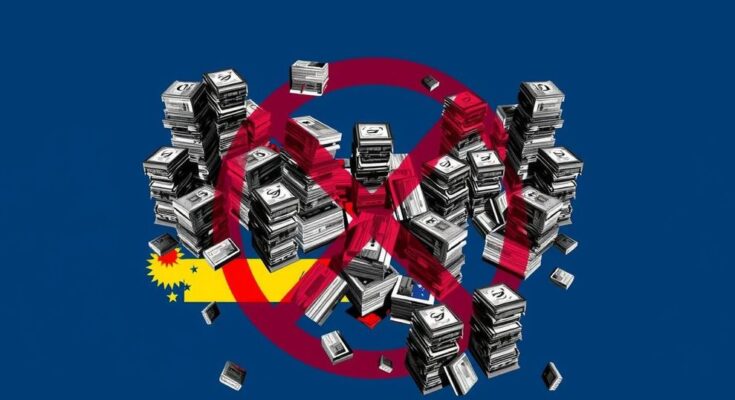The UN Human Rights Committee has mandated Venezuela to preserve voting tallies from the disputed July presidential election. Despite President Maduro’s declaration of victory, the opposition claims, supported by independent observers, that Edmundo González won decisively. The case emphasizes concerns about electoral fraud amid international recognition of González as president-elect.
The United Nations’ Human Rights Committee has directed the Venezuelan government to refrain from destroying the voting tallies from the presidential election held on July 28. The tallies are crucial as they contain the official results from each polling station and are central to the dispute regarding the election outcome. While the government-affiliated National Electoral Council (CNE) declared President Nicolás Maduro the victor, it has failed to substantiate this claim with the necessary data.
In contrast, the opposition, supported by accredited election witnesses, has published over 80% of the voting tallies, asserting that their candidate, Edmundo González, achieved a decisive win. Furthermore, the UN Committee is investigating allegations of electoral fraud following a complaint from a Venezuelan voter, thus emphasizing the importance of preserving the voting data.
Despite ongoing demands for the release of the election tallies, the CNE, comprising government loyalists, has yet to provide this information. The CNE attributed this delay to a purported hack on election night, which allegedly hindered their ability to present the data within the mandated timeline. However, the opposition swiftly made their collected tallies publicly available, with independent observers, including reputable media outlets like the New York Times and CNN, indicating that González secured 67% of the vote compared to Maduro’s 30%.
Maduro, however, has dismissed these findings as fraudulent and continues to assert his victory. He is advancing towards his planned inauguration on January 10, during which he intends to assume a third consecutive presidential term. Meanwhile, a growing coalition of nations—including the United States, Argentina, Italy, and others—recognizes González as the legitimate president-elect of Venezuela. The international law firm IHR Legal, which filed the complaint with the UN, described the case as “pioneering” and “historic,” hinting at the possibility of the Committee’s acknowledgment that Maduro may not be the rightful president.
The political landscape in Venezuela is fraught with tensions following the July presidential election. The National Electoral Council, perceived as an ally of President Maduro, has been criticized for its lack of transparency regarding the voting results. The dispute revolves around significant allegations of electoral fraud, with opposition figures claiming that the published tallies fundamentally contradict the official results declared by Maduro’s administration. The involvement of the UN Human Rights Committee reflects an international concern regarding the integrity of Venezuela’s electoral processes and governance.
In summary, the UN Human Rights Committee’s directive for Venezuela to preserve the electoral tallies underscores the international scrutiny over the legitimacy of the July presidential election results. The conflict between the government and the opposition, alongside escalating recognition of Edmundo González as the rightful president-elect by several countries, highlights the ongoing political crisis. Ultimately, the investigation into alleged electoral fraud could potentially reshape the future of governance in Venezuela.
Original Source: www.bbc.com




